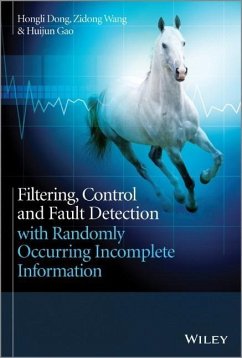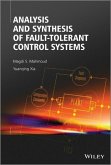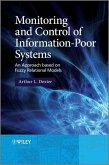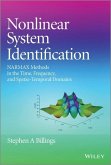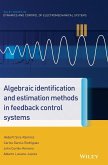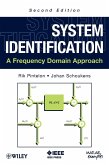In the context of systems and control, incomplete information refers to a dynamical system in which knowledge about the system states is limited due to the difficulties in modelling complexity in a quantitative way. The well-known types of incomplete information include parameter uncertainties and norm-bounded nonlinearities. Recently, in response to the development of network technologies, the phenomenon of randomly occurring incomplete information has become more and more prevalent.
Filtering, Control and Fault Detection with Randomly Occurring Incomplete Information reflects the state-of-the-art of the research area for handling randomly occurring incomplete information from three interrelated aspects of control, filtering and fault detection. Recent advances in networked control systems and distributed filtering over sensor networks are covered, and application potential in mobile robotics is also considered. The reader will benefit from the introduction of new concepts, new models and new methodologies with practical significance in control engineering and signal processing.
Key Features:
Establishes a unified framework for filtering, control and fault detection problem for various discrete-time nonlinear stochastic systems with randomly occurring incomplete information
Investigates several new concepts for randomly occurring phenomena and proposes a new system model to better describe network-induced problems
Demonstrates how newly developed techniques can handle emerging mathematical and computational challenges
Contains the latest research results
Filtering, Control and Fault Detection with Randomly Occurring Incomplete Information provides a unified yet neat framework for control/filtering/fault-detection with randomly occurring incomplete information. It is a comprehensive textbook for graduate students and is also a useful practical research reference for engineers dealing with control, filtering and fault detection problems for networked systems.
Filtering, Control and Fault Detection with Randomly Occurring Incomplete Information reflects the state-of-the-art of the research area for handling randomly occurring incomplete information from three interrelated aspects of control, filtering and fault detection. Recent advances in networked control systems and distributed filtering over sensor networks are covered, and application potential in mobile robotics is also considered. The reader will benefit from the introduction of new concepts, new models and new methodologies with practical significance in control engineering and signal processing.
Key Features:
Establishes a unified framework for filtering, control and fault detection problem for various discrete-time nonlinear stochastic systems with randomly occurring incomplete information
Investigates several new concepts for randomly occurring phenomena and proposes a new system model to better describe network-induced problems
Demonstrates how newly developed techniques can handle emerging mathematical and computational challenges
Contains the latest research results
Filtering, Control and Fault Detection with Randomly Occurring Incomplete Information provides a unified yet neat framework for control/filtering/fault-detection with randomly occurring incomplete information. It is a comprehensive textbook for graduate students and is also a useful practical research reference for engineers dealing with control, filtering and fault detection problems for networked systems.

